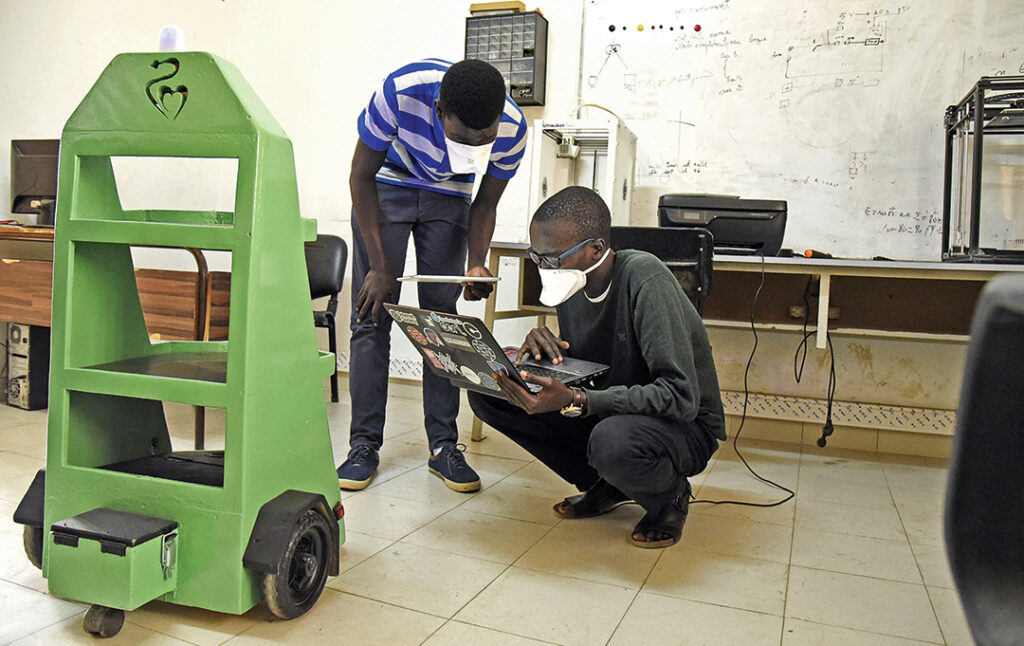AGENCE FRANCE-PRESSE
Senegalese engineering students are throwing themselves at the COVID-19 problem with inventions such as automatic sanitizer dispensers and medical robots.
Young innovators from a top engineering school in the capital, Dakar, have turned their technical skills toward easing pressure on the wards, and they are already in talks with hospitals over some of their new products.
One example is a small robot, dubbed “Dr. Car,” which will measure patients’ blood pressure and temperature, according to students from Dakar’s Ecole Superieure Polytechnique.
The university is one of West Africa’s best for engineering and technology, and is highly selective, with 28 nationalities represented among its 4,000 students.
Lamine Mouhamed Kebe, one of the students who designed the robot, said the machine would reduce the exposure of doctors and nurses to infected patients and use of expensive protective gear.
Guided by a mounted camera and controlled by an app, doctors also will be able to communicate with patients through the robot, Kebe said, potentially allowing them to treat people in isolated rural areas.
Front-line Senegalese doctors are taking the young engineers seriously. An initial prototype designed by the students was essentially a small mobile trolley, designed to carry equipment or meals to patients.
But Abdoulaye Bousso, head of an emergency ward in a Dakar hospital, asked to redesign it to include mechanical arms capable of conducting medical tests — an upgrade the students are working on now.
“It’s a whole process,” Bousso said, adding that the robot could cut down on their use of expensive bibs and gowns, which must be thrown away.
Other students have devised simpler devices that they also hope will battle the disease in Senegal.
Gianna Andjembe, a master’s student in electrical engineering, has designed an automatic hand-sanitizer dispenser that he said could reduce the need for staff in schools and hospitals to supervise hand-washing.
“As scientists, as engineers, we have to meet the challenges and really take our destiny into our own hands,” Andjembe added.

